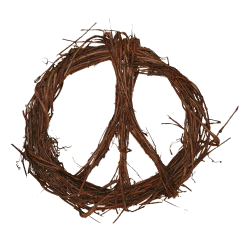"We will not have great questions decided by irrelevant agencies . . ."
My thanks to Medea Benjamin for her recent Common Dreams essay putting the spirit of Julia Ward Howe back into Mother's Day. I'd forgotten about her 1870 proclamation of disarmament and call to the mothers of Planet Earth to come together in collective counsel "to promote the alliance of the different nationalities, the amicable settlement of international questions, the great and general interests of peace."
Howe's words, which launched what has become yet one more greeting-card holiday, were a call, in the wake of the Civil War, to do no less than reorganize the world. One hundred forty-two years later, they seem more appropriate than ever, indeed, aflame with urgency, especially here in Chicago, where I live, because of the NATO summit coming up in a few days -- that body being one of those over-hyped, "irrelevant agencies" with the power to decide great questions, like where the world's major powers will wage the next war.
The point of the protests, the bane of the security state, is to expand the context of the summit and challenge the structure of our global decision-making process, which has hardened into certainty about the inevitability of war.
All the attendant cynicism and self-interest of this certainty is hidden behind the pomp and extravagant security measures. Thus the Chicago Tribune can proclaim in a headline, "Chicago braces for violence at NATO summit" -- meaning, of course, violence wrought by war protesters -- as though those coming to challenge the NATO agenda are bringing with them a history of violence.
"Chicago police, who have a reputation for dealing toughly with protesters," begins the Reuters story bearing that headline, "will be prepared for the worst with new riot gear, including 'sound cannons,' if demonstrators at the NATO summit get out of line this weekend."
This is the state of legitimate dialogue about "the great and general interests of peace": We reduce Mother's Day to another tepid consumer holiday and exclude the passion it embodies, for a world that has transcended war and set itself on a steady course of justice and disarmament, from the decision-making process of nation states. Then, when those who have been excluded show up to demand that their voices be heard and the global conversation on war be an honest one, they're greeted with sound cannons (oh, the symbolism) and riot gear, not to mention inane, fear-mongering headlines.
Yet the history of violence that is coming to Chicago belongs entirely to NATO. This is the organization that is the subject of the recently released Human Rights Watch report, "Unacknowledged Deaths: Civilian Casualties in NATO's Air Campaign in Libya." The report challenges NATO to address the 72 civilian deaths -- including 24 children -- its bombing strikes caused last year in Libya.
In the world of war, and the coverage thereof in the mainstream media, 72 deaths are nothing at all, unless they're caused by the enemy. When the good guys cause the deaths, simple regret suffices:
"In Brussels," AP informs us, "NATO expressed regret for any civilian casualties but said it had carried out the bombing campaign with 'unprecedented care and precision' and had fulfilled the requirements of international humanitarian law."
A day later, another AP story: "The U.S. expressed regret for the airstrikes" -- this time, in Pakistan -- that killed 24 Pakistani soldiers on the Afghan border. NATO had invited President Zardari to the summit, hoping he's ready to reopen Pakistan's western border to allow U.S. and NATO military supplies to get to Afghanistan.
What a paradox. We reduce every discussion of war to a discussion of strategy and tactics and never get to the bedrock morality of what we're doing. We mask unutterable brutality and an agenda of endless violence and global domination in the language of Hallmark greeting cards and turn sound cannons on the ensuing cries of outrage.
The summit's main agenda item will be the war in Afghanistan, but the discussion among the 50 or so heads of state in attendance won't include the heartbreaking question: Why?
One answer to that question may simply be to give Europe's NATO member states a reason to have a military at all. Once the Cold War ended, NATO had no real reason to exist, but for the past 11 years the organization has found its raison d'etre in Afghanistan. NATO allies have helped prolong the engagement by sending more than 30,000 troops into battle during that time. This is the world order, and the ones who suffer because of it don't matter.
"In the name of womanhood and humanity," intoned Julia Ward Howe, the time has come to demand disarmament. The time has come to rethink the world we have created, which assumes and depends on violence without end. The time has come to rebuild civilization with peace at its core.

